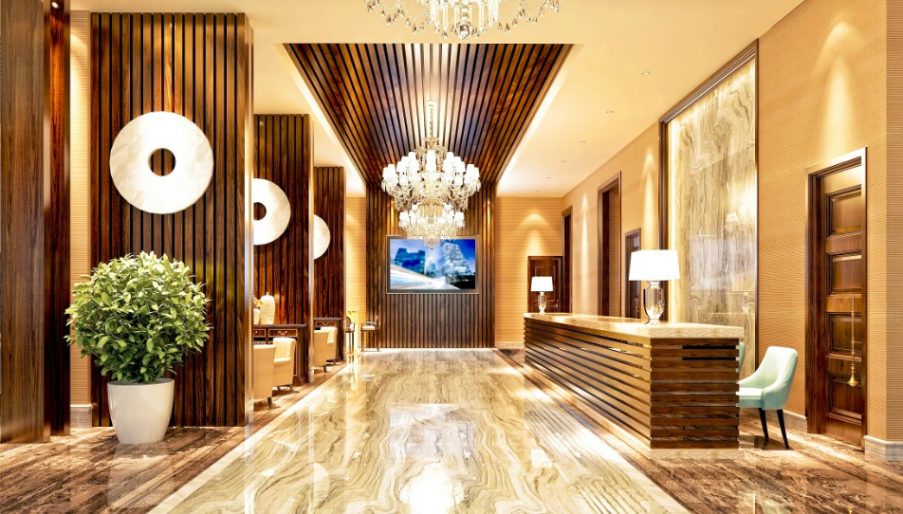While demand for multifamily housing remains relatively robust, COVID-19 continues to devastate Canada’s hotel sector with Altus Group reporting a 90 per cent drop in revenue since the state of emergency was declared in March. Given the uncertainty of the travel and tourism industry and Canada’s pressing need for affordable housing, could converting hotels into multifamily rental apartments serve as an effective solution?
Qaiser Mian, Senior Director, Hospitality and Senior Housing at Altus Group, is one of many experts who believes that it could. “Although the long-term prospects for the Canadian hotel sector remain positive, COVID-19 has impacted the industry severely with fewer than 50 per cent of hotels now open during the peak travel summer months,” he reveals. “In the absence of this crucial summer revenue, combined with the possibility of a prolonged recovery period and increased operating costs, hoteliers, like many small business owners, must make the assessment as to the long-term viability of their operations.”
And the novel coronavirus isn’t the only force creating waves throughout the sector. Videoconferencing and virtual meeting apps intended as interim solutions during the lockdown period have potentially reduced the need for business travel. Furthermore, fears surrounding exposure to illness and the aggravation of adhering to strict isolation rules are keeping most leisure travellers from venturing too far abroad, at least until a vaccine is in the picture.
By contrast, the pandemic has shone a spotlight on housing need, with most jurisdictions in Canada continuing to search for affordable solutions. As Mian points out, converting hotels into multifamily apartments can help meet this demand by enabling owners and investors to quickly move supply into the market—with real benefits to the owner if the conversion is done right.
“Due to their design, hotels can be adapted into apartment use relatively easily compared to other real estate,” he says. “When the stability of cash-flow, access to broader sources of capital, and lower capitalization rates relative to hotels are taken into consideration, some owners would be well advised to consider the possibility of a conversion. The key is to determine whether the property is well positioned to thrive in an emerging marketplace, or if the asset is better suited for something else.”
Likely, smaller, older, owner-operated hotels in secondary and tertiary markets will find it harder to rebound from the crisis—which is why Mian advises owners of these assets to carefully evaluate their options. A thorough “SWOT” (strengths-weaknesses-opportunities-threats) analysis looking at everything from pre-pandemic market conditions to building size, floor plate, location and zoning, will help inform a decision. But it all starts with an ability to “get out of your comfort zone and undertake an objective assessment of your competitive position,” he says. “Most hurdles can be mitigated through careful planning, entering strategic partnerships and engaging the right advisors.”
Evaluating the options
If a conversion does look preferable to staying the course as a hotel, the next step is to evaluate the options. According to Mian, affordable, market rental, seniors and student housing all represent potentially profitable conversions for hotels with complementary footprints and infrastructure.
To determine the right fit, a “highest and best use” analysis and a feasibility study are recommended. These steps will help owners quantify the level of demand and supply for optional uses of their buildings within specific markets, while projecting which options will likely add value and generate long-term returns. They’ll answer key questions, like:
- What is the macroeconomic environment of the area: employment, income growth, population growth, demographic characteristics?
- Current and future market demand?
- Sector profitability?
- Competitive landscape?
- Industry cost structure?
- Regulatory controls?
- The community’s position on potential redevelopment?
Other key factors with potential financial ramifications:
- Condition of the building – envelope, HVAC, electrical, lighting and fire systems, technology infrastructure and finishes;
- Tenant space – floor plate size and shape, usable square footage, common area factors;
- Legal/regulatory – building codes, insurance requirements, government regulations.
Already, as lenders review their hotel portfolios and are forced to make tough decisions about which operators to support at the expense of others, properties with no cash flow and burgeoning carrying costs are most at risk of closure. To find out if a conversion is in your property’s best interest, visit: https://www.altusgroup.com/services/insights/its-an-optimal-time-for-converting-hotel-assets-to-multi-family/





